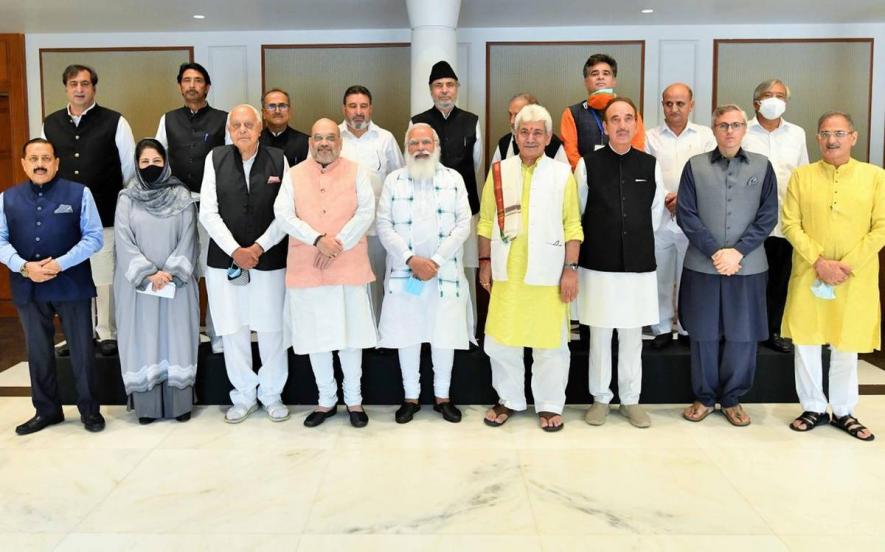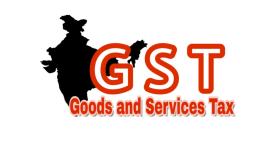Modi’s Kashmir Gamble and Uttar Pradesh Election

India’s Kashmir policy is part external affairs, part home affairs. Depending upon the predilection of the person in power in Delhi, the relative share varies. For example, in Pandit Nehru’s time, when foreign policy used to matter more, it was primarily seen through the prism of international politics. But in Prime Minister Narendra Modi’s time, since Hindutva politics is reigning all the way, his Kashmir policy is nothing but an extension of his Hindutva ideological thrust.
Behind every move in Kashmir, the Modi government needs to see how it would influence Hindu voters in the cow belt. Unless one is ready to analyse the current developments from this perspective, our reading of the ongoing events will not be anything other than reinventing the wheel, that is, autonomy for Kashmir, bringing Kashmiris back to the Indian ‘mainstream’, and so forth.
Let me, therefore, paraphrase in this connection what a Bill Clinton adviser had famously said during his election campaign in 1992, “It’s the economy, stupid.” I would say: It’s the UP election, stupid.
But here, there is a problem. The challenge is to interpret Modi’s climb-down on Kashmir as a step forward in his Hindutva march. There is little doubt that as the Uttar Pradesh election will draw closer (likely in March 2022), the BJP would be obliged to use its Hindu card with greater gusto because the party has nothing else to flaunt. The Modi-Yogi (Uttar Pradesh Chief Minister Yogi Adityanath) political confrontation, though being wrapped up in all kinds of subterfuges, is quite out in the open. Modi could have easily used the dismal failure of the Adityanath regime in combating the scourge of COVID-19, but Modi’s record is not glorious on that count either. The fear is that the more Adityanath is pushed to the corner, the more he would embarrass Modi by listing the failings of the latter.
Simply put, the only meeting point between Modi and Adityanath has to be the platform of Hindutva, although each will try to steal the thunder as its bigger votary. The postponement of the winner-loser melodrama to the last scene, the electoral outcome, would be the best bet. Given this reality, how best to fit his Kashmir gamble into the Uttar Pradesh election campaign is Modi’s trial. Indeed, the Opposition will not leave any stone unturned to use the BJP’s discomfiture on this count.
How exactly Modi’s Uttar Pradesh strategy will pan out is difficult to foresee. One will have to wait till the winter when, for climatic reasons, Kashmir politics will go into hibernation, while the Uttar Pradesh election campaign will be in full steam. It is by early next year, therefore, that the real face of Modi’s Kashmir policy would be exposed. He would not only be obliged to sell his macho image of the one who defanged Articles 370 and 35A but also the one who is committed to seeing to it that Hindu-majority Jammu are better placed to neutralise the political power of the Muslim-majority Valley. It is only possible through the redrawing of the Assembly constituencies. The proposed delimitation is already on the cards. He has made it clear to the Kashmiri leaders: first, delimitation, then the election and then restoration of statehood, in that order.
As a backgrounder, one would be advised to recall how the emasculation of Articles 370 and 35A were greeted with delight in the cow belt, as if Kashmir’s picturesque meadows would now open to purchase by North India’s real-estate tycoons and Kashmir’s fair-skinned women would be up for grabs by rugged half-educated North Indian Hindu grooms. The BJP Chief Minister of Haryana had the audacity to even say so publicly. To cap it all, by way of displaying their commitment to building a Hindu rashtra (nation) some Hindu fanatics mercilessly thrashed Kashmiri Muslim street-vendors and small traders as if they were the ones who came in the way of their dream project.
All this, however, cannot be repeated now by the Hindutva champions, as their Hindu Hriday Samrat (darling of Hindu hearts) Modi has himself broken bread with the Kashmiri Muslim ‘gangsters’. The so-called “Gupkar Gang” was a phrase coined by no less a confidant of Modi than Amit Shah, the Union Home Minister. That this phrase has lost much of its shine from overuse is another matter. Of late, we seldom hear of the tukde-tukde gang, the Khan Market gang, the Lutyens’ gang, either.
In the Uttar Pradesh election, therefore, the only new Hindutva platform that will be manufactured to dilute Modi’s retreat from his macho Kashmir policy will be by way of compensating for the distress that the Jammu Hindus are allegedly subjected to. The more the BJP is pushed to the corner by the agitating farmers, who have shown their political teeth at their pro-Mamata Banerjee rallies in Bengal, the more it will be obliged to display its pro-Jammu card, by disproportionately highlighting the necessity of delimiting the Assembly constituencies of Jammu and Kashmir to give more powers to Jammu Hindus vis-à-vis the Valley Muslims. What happens, in the long run, is not the issue, the issue is to stir the broth during the campaign to soothe Hindu sensibilities.
To conclude, let me underline that despite all efforts of the Hindutva forces to push ‘secularism’ into oblivion, its ghost is not yet exorcised, as the 2024 election may demonstrate. In a similar vein, the ghost of Sheikh Abdullah still haunts the mandarins in Delhi who are forced to walk the tight-rope at the one end of which is the question of Kashmir’s “autonomy” while on the other end is the challenge to find a workable balance between Delhi and Srinagar. That in this ever ending game the latter always suffers from the tension of losing its balance only proves the point, meaning it is able to still cling to the rope notwithstanding all the impediments put up by Delhi.
Between 1953 and 1975, Sheikh Abdullah, Kashmir’s legendary leader, had to spend much of his time in prison—11 years of which were during the Nehru regime. Through these years, the government at Delhi tried its best to dictate the Kashmir narrative through its cronies put on the political seat of Srinagar. But the issue of autonomy refused to die. In a recent newspaper column, one of the most thoughtful voices from Kashmir, Haseeb Drabu, Jammu and Kashmir’s former finance minister, quotes Abdullah to characterise the period as that of siyasi awaragardi (political vagabondism), meaning that New Delhi was trying to control Kashmir by hook or by crook but with limited success. Is the Modi government entering into yet another phase of siyasi awaragardi? Whether secularism or Hindutva, Kashmir will remain Kashmir, as always.
The author is Senior Fellow at the Institute of Social Sciences, New Delhi, and formerly ICSSR National Fellow and professor of South Asian Studies at JNU. The views are personal
Get the latest reports & analysis with people's perspective on Protests, movements & deep analytical videos, discussions of the current affairs in your Telegram app. Subscribe to NewsClick's Telegram channel & get Real-Time updates on stories, as they get published on our website.























